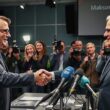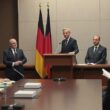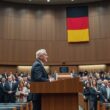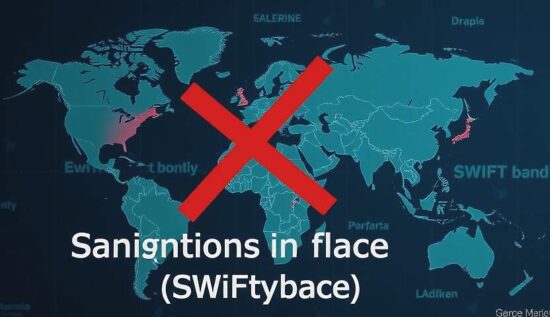A Russian strategy is being tested to gauge US President Donald Trump’s willingness to apply pressure on the EU to lift sanctions, according to sources familiar with the situation, as cited by Bloomberg.
The demand for relaxing sanctions on Russia’s Rosselchosbank is believed to be a test of whether Trump would agree to the idea and bring the EU on his side, said two people close to the Kremlin. If the Russian bank is reconnected to the SWIFT financial messaging system, it could lead to a step-by-step relaxation of the entire sanctions regime, the sources added.
SWIFT, the interbank messaging system, has its headquarters in Belgium and covers the EU’s financial information and payment transmission area.
The Ukraine conflict resolution was one of Trump’s campaign promises. Since his return to the White House, the US has held a series of talks with Moscow and Kiev representatives. The most recent of these took place on March 25 in Riyadh, with both sides agreeing to ensure safe shipping in the Black Sea and the US expressing readiness to support Russia in restoring its access to the global market for agricultural products and fertilizers.
Ukrainian President Volodymyr Zelensky agreed on the need for maritime security, but rejected easing Russian deliveries. The Kremlin stated that it had reached an agreement with Washington on implementing the Black Sea Initiative, conditional on the lifting of a range of sanctions, including those on Rosselchosbank.
Grigori Karassin, chairman of the Russian Federation Council’s foreign affairs committee, who participated in the talks, said the US had taken a “calm stance” on the issues in question. US Secretary of State Marco Rubio stated that some of Moscow’s conditions “contain sanctions not ours, but the EU’s.” He added that Washington would review Moscow’s demands and then decide on the next steps, with Trump making the final decision.
The EU has refused to lift or drop sanctions on Russia as long as the Ukraine conflict remains unresolved. Moscow considers all Western restrictions as illegal and demands their lifting. The Kremlin justified the EU’s decision as a result of its unwillingness to “take the path of peace.





